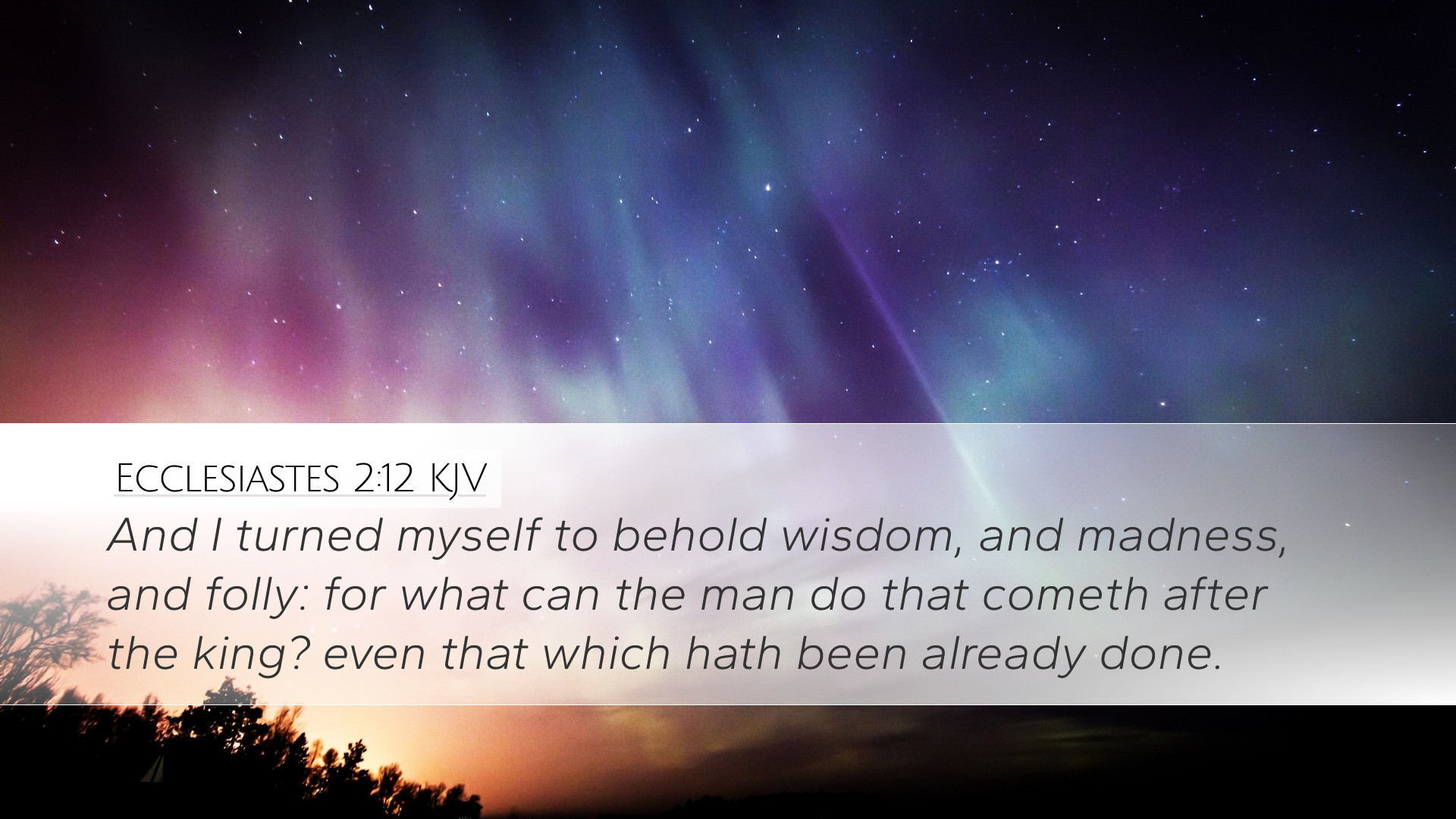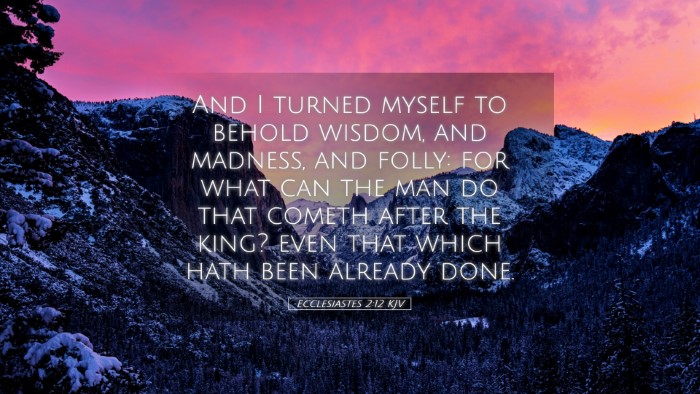Ecclesiastes 2:12 - Commentary Summary
Ecclesiastes 2:12 states: "So I turned to consider wisdom and madness and folly; for what can the man do who comes after the king? Only what has already been done." This verse comes in the context of the Preacher's reflections on the value of wisdom in comparison to folly.
Contextual Overview
The Book of Ecclesiastes focuses on the futility of life apart from God, emphasizing the transient nature of human experiences and achievements. The author, traditionally believed to be King Solomon, embarks on a quest for meaning through various avenues, including wisdom, pleasure, and labor.
Insights from Commentators
-
Matthew Henry's Commentary
Wisdom vs. Folly: Matthew Henry emphasizes the struggle of understanding the nature of wisdom in relation to folly. He states that wisdom provides a richer and deeper understanding, yet folly often seems attractive due to its immediate satisfactions. The Preacher's contemplation reveals the limitations of human understanding and the paradox of seeking fulfillment in either wisdom or folly, which leads to reflections on their ultimate outcomes.
-
Albert Barnes' Notes
The Role of Legacy: Barnes notes that the author reflects on the implications of one's actions in the face of legacy. The preoccupation with "what has already been done" implies a frustration with succession: after the king—the pinnacle of human achievement—what can an ordinary man hope to achieve? The commentary stresses the importance of understanding one's place in the grand scheme of existence and the limitations inherent in human endeavors.
-
Adam Clarke's Commentary
The Pursuit of Knowledge: Clarke highlights the complexity of wisdom and folly, noting that while wisdom is noble and desirable, it is often met with challenges and contradictions. His insights suggest that the pursuit of knowledge leads to an awareness of the limitations of human wisdom. Clarke further reflects on the cyclical nature of wisdom—those who come after can only emulate or build upon what has already been learned, emphasizing the notion of existential repetitiveness.
Theological Implications
The theological implications drawn from Ecclesiastes 2:12 resonate deeply with pastoral care and the spiritual journey of believers. The struggle between wisdom and folly prompts critical questions about purpose, legacy, and the meaning of life.
- Human Limitations: The verse serves as a poignant reminder of our limitations. It encourages readers to embrace humility in their quest for knowledge and wisdom, recognizing that the fullness of understanding is ultimately beyond human grasp.
- Value of Legacy: For pastors and leaders, this commentary invites an examination of one's legacy. Ecclesiastes challenges us to consider what we leave behind and how our lives influence those who follow.
- Existential Reflection: The cyclical nature of life and the repetition of human endeavors called for in this verse encourages deeper existential reflection, provoking thought about how to engage meaningfully with life’s pursuits.
Practical Application
As followers of Christ, the insights from this verse and its commentaries prompt practical applications for daily living:
- Prioritize Wisdom: As believers, we should prioritize a pursuit of godly wisdom that aligns with Scripture rather than the fleeting pleasures of folly.
- Reflect Regularly: Engage in regular self-reflection to understand our motivations and the impact of our lives on future generations.
- Seek Meaning Beyond Achievement: Recognize that true fulfillment comes from a relationship with God rather than the accolades of human achievements.
Conclusion
In light of Ecclesiastes 2:12, it becomes clear that contemplating wisdom, folly, and our legacies is essential for anyone desiring to lead a life that honors God. The combined insights of Matthew Henry, Albert Barnes, and Adam Clarke encourage students, pastors, and scholars to think critically about the pursuits of their lives, urging them to seek understanding that transcends mere human experiences.


